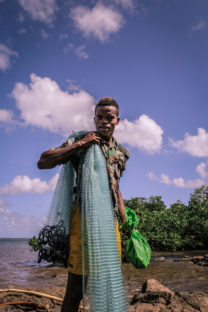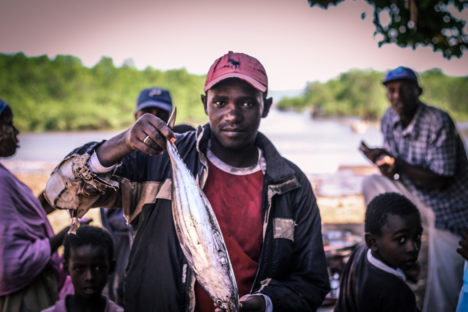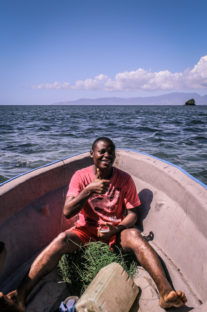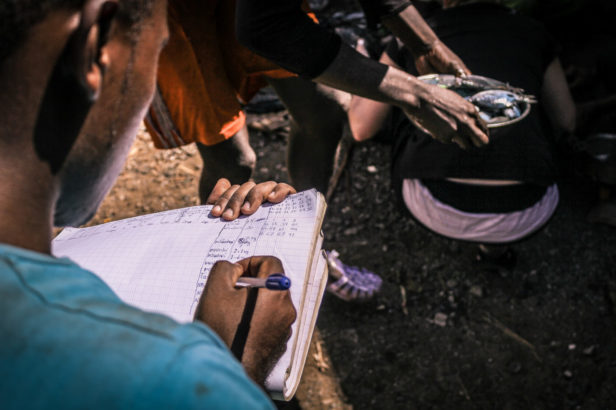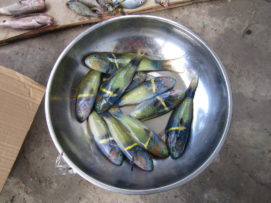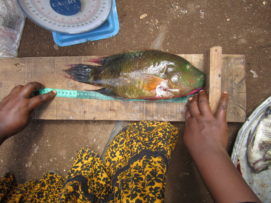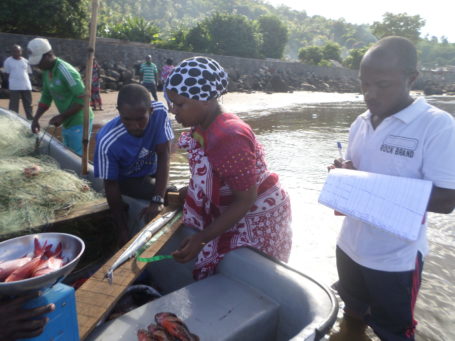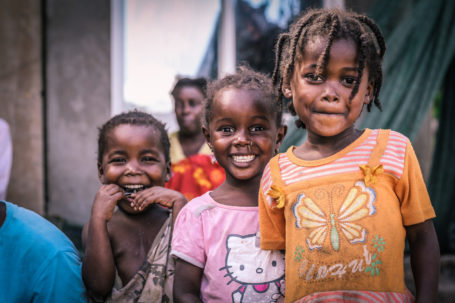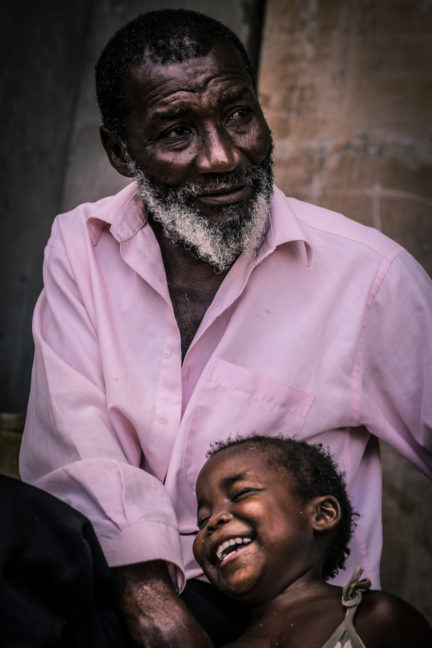Fishing is hugely important in the Comoros as fish is the most regularly consumed dietary protein and an important source of income for many Comorians. However, it can be a difficult and often fickle livelihood due to poor access to markets, insufficient infrastructure, and volatile weather. On the island of Anjouan everyone can become a fisher, or improvise as a fisher, for a day, a week, or a month if necessary, but it is not uncommon to have several jobs at the same time.
Understanding how vital fishing is to the people of Anjouan, Dahari formed a team dedicated to building a positive marine future on this island. Last October, I arrived as a Blue Ventures staff member to support Dahari in recruiting and training staff and to lead the team of staff and community partners in accomplishing programme objectives. The mission of this team is to secure the sustainability of fishing and the revenues that fishing generates, as well as the conservation of the marine biodiversity of the Comoros.
Project Inception
Over 12 months of data collection, technicians sampled from 573 fishing trips, 64 fishing sites, 77 fishers, and 96 different species.
Bimbini, a village on the west of Anjouan, was the starting point for the Dahari team, with studies and monitoring beginning there in early 2015.
On average the team follows about ten fishers per survey day, monitoring their approach in order to be there the moment they come ashore. Each species caught is weighed, and samples of each species are measured. At the same time, the team finds out what fishing techniques were used, which fishing areas, the time spent fishing, the type of fishing (offshore or coastal), the type of boat (canoe, paddleboat or speedboat), and the time spent at sea. The same procedure is carried out for each new arrival.
There is a strong seasonality in fishing effort and species caught due to the changes in season and weather, so the survey must be carried out by the Dahari team over several months.
Bimbini Objectives
All of this information will be reproduced for the benefit of the community, and in order to develop an overview of the situation and decide what steps to take to improve fishing and management.
The objectives of this monitoring are to develop a better understanding of the current state of fishing in the area, and to identify appropriate management options. The data collected concerning the weight and the size of the fish will enable analysis on whether overfishing is occurring, and the monitoring of the fishers’ activity will allow fishing effort to be calculated, and the effectiveness of specific techniques and gear to be measured.
Vassi
After a year of data collection in Bimbini the team migrated to Vassi, another village on Anjouan, to support the work that has been happening there since last October. A team of 4 people have been monitoring the fishing twice a week, whilst also working closely with the fishers and the village community to gather sociological and ecological data.
The sociological data will give context to the mission of the Dahari team, and enable them to develop a better understanding of the village that they are working in, including the community practices, the hierarchies at the heart of the village, and the overall expectations of the population.
The ecological data will contribute towards a more accurate global perspective on the current state of the reefs and the other marine ecosystems of the Comoros, hopefully stimulating increased awareness and support.
Progress
The Anjouan communities have already started planning steps towards sustainable management, and in Vassi a community decision was made to prohibit net fishing.
We are also planning an exchange visit with Blue Ventures’ partner communities in Madagascar to enable the fishers of Anjouan to experience different forms of community management and marine conservation practices. We’ve found community exchanges like these to be an incredible and powerful experience.
The most important factor in the progression of sustainable management in the Comoros will be continued community support. Making management decisions without the support of the community, for example a blanket ban on fishing in protected areas, would create long term frustrations and misunderstandings. We must work with the fishers, listen to them, and support them in finding innovative methods that promote traditional expertise.
By helping them to answer their questions we can improve their daily life at sea, increase their yield, and ensure that their practices are sustainable far into the future.
Blue Ventures’ work in the Comoros is funded by the Critical Ecosystem Partnership Fund (CEPF), a joint initiative of l’Agence Française de Développement, Conservation International, the European Union, the Global Environment Facility, the Government of Japan, the MacArthur Foundation and the World Bank.
This blog post was originally written by Pauline de Meslon and published in French on the website of our partner Dahari. The content has been edited for publication on the Beyond Conservation Blog.


